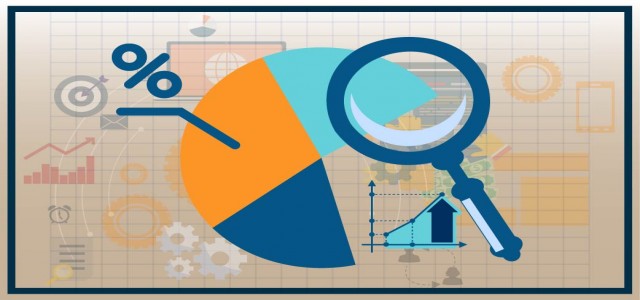
Rising automation in the world is expected to fuel robot end-effector market size in the coming years. The increasing adoption of robots and advanced robotic technologies in various sectors has positively influenced the growth graph of the industrial robotics segment.
For instance, U.S.-based company Piab launched piSOFTGRIP - a vacuum-driven soft gripper in the year 2019 to be used in the food industry. This silicone gripper permits automated food handling solutions to include a wide range of items. Unpacked, delicate, and fresh food products can be handled without the risk of contamination.
The global robot end-effector market size could cross USD 6.5 billion in terms of value through 2025. Expounded below are certain factors likely to impact the industry forecast in the near future.
Request for a sample copy of this research report@ https://www.decresearch.com/request-sample/detail/4286
Rapid emergence of industry 4.0 solutions
The introduction of Industry 4.0 in the manufacturing sector, that comprises the inclusion of technological trends like cloud robotics, big data, automation, cyber-physical systems along with IoT is fueling the need for advanced end-effectors. Recognized institutions like Comau have worked alongside industry 4.0 pioneers through the creation of collaborative robots, like AURA that consists of a layer of sensors placed beneath a protective foam that can detect human movement.
Automated solutions in developed regions
Increasing demand for smart automation technologies in developed regions like the U.S. has magnified growth trends in the sector. Several firms have offered automated solutions in the commercial industry at a lower cost and with increased productivity. Both U.S and Europe are working towards improving their manufacturing industries due to the escalating product demands by automating production facilities, in order to reduce the cost associated with labor and expand profit margins.
The European companies are aiming to develop more advanced and collaborative robots that are specifically designed to work with the industry workforce. Collaborative robots are used for operations and are used to perform heavy-duty tasks like moving raw materials and equipment.
Request for customization@ https://www.decresearch.com/roc/4286
Use in automobile manufacturing application
The automobile industry has emerged as a leading consumer of robot end-use effectors as the companies are deploying robots to increase the work output as opposed to manual labor. Changing trends, like the development of sustainable drive systems and electric vehicles, are encouraging consumers to shift to advanced vehicle variants.
The coronavirus has impacted the sale of automobiles due to the restriction in production abilities as well as the availability of raw materials. With gradual relaxations in the workings along with the introduction of advanced vehicle models, the automobile production sector is sure to regain momentum, further complementing robot end-effector industry trends.
Efforts to reinforce product portfolio
Robot end-effector companies always try to advance technologies and improve product quality as well as features to meet the increasing industrial demands. The rise in disposable income among various countries has propelled the demand for various goods, subsequently pushing the need to accelerate and improve the manufacturing process.
To improve the product portfolio robot end-effector providers are also resorting to mergers and acquisitions or strategic alliances. In October 2020, American firm – Applied Robotics announced the acquisition of Advanced Control Solutions- a distributor of automation items, collaborative robots, and other automated engineering solutions. The transaction aims at extending and improving Applied’s automation offerings by providing next-gen technologies.
Other market participants include Schunk, SMC Corporation of America, Staubli International AG, OnRobot A/S, and FIPA, among various others.
The use of these enhanced IoT technologies is likely to accelerate production and enhance efficiency by transferring computational and decision-making powers to the robotic systems. Factors like increasing deployment of collaborative robots along with the use of the technology in logistics applications for pick and place operations, declining cost of sensors, and others will prove to be profitable for robot end- effector market.
Table of contents for this research report@ https://www.decresearch.com/toc/detail/robot-end-effector-market
About Us: –
DecResearch.com, powered by GMI, is an online aggregator of information on market research reports. The website provides comprehensive information as well as a detailed ‘Table of Contents’ for reports being regularly published by GMI. Via this platform, users not only get to answers to their questions about these reports, they also have an additional avenue to talk to the sales and research teams of GMI to learn more about the topics of their interest.
Contact Us: –
DecResearch.com
Website: – https://www.decresearch.com
Email: [email protected]
© 2025 groundalerts.com. All Rights Reserved.